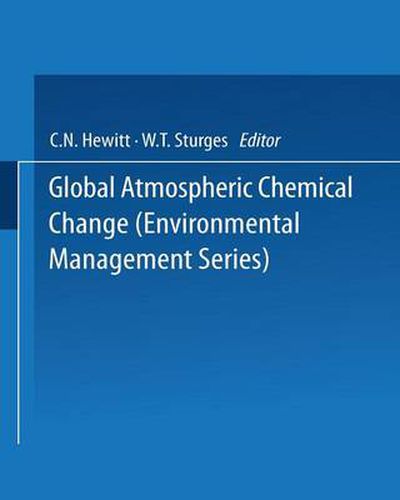Readings Newsletter
Become a Readings Member to make your shopping experience even easier.
Sign in or sign up for free!
You’re not far away from qualifying for FREE standard shipping within Australia
You’ve qualified for FREE standard shipping within Australia
The cart is loading…






This title is printed to order. This book may have been self-published. If so, we cannot guarantee the quality of the content. In the main most books will have gone through the editing process however some may not. We therefore suggest that you be aware of this before ordering this book. If in doubt check either the author or publisher’s details as we are unable to accept any returns unless they are faulty. Please contact us if you have any questions.
Air pollution has historically been viewed as a local or regional scale problem with attention focused on acute episodes such as the sulphur dioxide and smoke smogs of London in the 1950s and 1960s and the photochemical smogs of southern California first recognized by Haagen Smit in the early 1950s. In recent years, however, it has become apparent that human activity has, and still is, changing the chemical composition of the atmosphere on a global scale. The composition of the atmosphere has seen enormous changes due to natural processes since the formation of the planet. Data obtained from air bubbles trapped in polar ice are beginning to reveal information about these changes over the last tens of thousands of years and geochemical models of the evolution of the Earth give us insights into the changes over much longer periods of time. Perhaps the crucial differences between these natural changes and those now being induced by man are their rel ative rates of change. The magnitude of present day fluxes of some com pounds released as air pollutants is in some cases much larger than those arising naturally. In other cases, for example carbon dioxide, the an thropogenic emission rates are small compared with that of the natural cycle, but the kinetics of the system are such that the steady state concent rations of the compounds in the atmosphere are now being perturbed.
$9.00 standard shipping within Australia
FREE standard shipping within Australia for orders over $100.00
Express & International shipping calculated at checkout
Stock availability can be subject to change without notice. We recommend calling the shop or contacting our online team to check availability of low stock items. Please see our Shopping Online page for more details.
This title is printed to order. This book may have been self-published. If so, we cannot guarantee the quality of the content. In the main most books will have gone through the editing process however some may not. We therefore suggest that you be aware of this before ordering this book. If in doubt check either the author or publisher’s details as we are unable to accept any returns unless they are faulty. Please contact us if you have any questions.
Air pollution has historically been viewed as a local or regional scale problem with attention focused on acute episodes such as the sulphur dioxide and smoke smogs of London in the 1950s and 1960s and the photochemical smogs of southern California first recognized by Haagen Smit in the early 1950s. In recent years, however, it has become apparent that human activity has, and still is, changing the chemical composition of the atmosphere on a global scale. The composition of the atmosphere has seen enormous changes due to natural processes since the formation of the planet. Data obtained from air bubbles trapped in polar ice are beginning to reveal information about these changes over the last tens of thousands of years and geochemical models of the evolution of the Earth give us insights into the changes over much longer periods of time. Perhaps the crucial differences between these natural changes and those now being induced by man are their rel ative rates of change. The magnitude of present day fluxes of some com pounds released as air pollutants is in some cases much larger than those arising naturally. In other cases, for example carbon dioxide, the an thropogenic emission rates are small compared with that of the natural cycle, but the kinetics of the system are such that the steady state concent rations of the compounds in the atmosphere are now being perturbed.